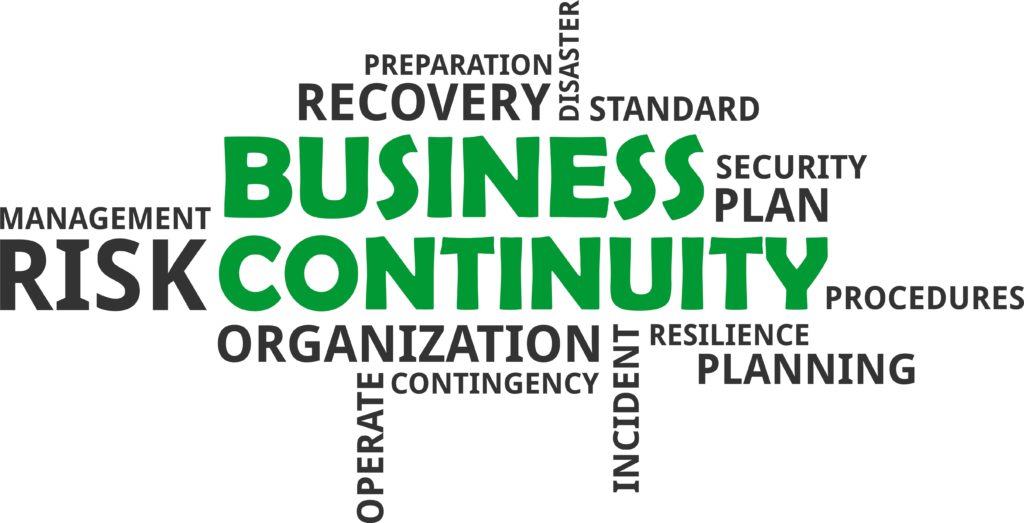January 18th, 2021 | Jonathan's Computer Centers | Rebecca Hatala

Globalization, defined as the speedup of movements and exchanges of human beings, goods, and services, capital, technologies, or cultural practices, around the world, has been the most significant factor in global affairs in the 21st Century. World Trade expanded from 39% GDP in 1990 to 60% in 2019. This dramatically transformed the supply chain industry, creating vast opportunities as well as vulnerabilities for companies interconnected globally-reliant, at the mercy of any and all unprecedented worldly factors.
In 2015, Adjiedj Bakas, a highly acclaimed trend-watcher, coined the term “Slowbalisation” to describe the pushback against globalization. Therefore identified the risks and escalations associated with hyper-globalization through previous events. Still, nothing quite like the COVID-19 pandemic had such a permeant impact on world trade in the last decades. While shortcomings of our existing systems have been exposed to the point where they can no longer be overlooked, new trends take form in the volumes. The shock to the global supply chain was most evident in the months of empty shelves worldwide and more heavily in the US, where toilet paper products, hand sanitizer products, and other essential products used to be.
In the aftermath of 2020, reshoring and localizing a portion of the US supply chain has been seen as a favorable decision to create more continuity, control, and stability in the national economy.
While global leaders and trend-watchers have been more openly predicting this happening, we also see procurement professionals and companies taking initiatives to expand their local supply chain and create some diversity in qualified suppliers and channel partners. The consensus is this will provide a little more control over the instabilities and uncertainty of what a post-COVID-19 world will look like.
When the business savvy thing to do is also the ethical thing to do, it’s that much more likely that this trend will stick and shape the economy for years to come.

6 reasons building a local supply chain and/or working with a local channel partner can be beneficial in relation to current events:
- Local suppliers and channel partners can help purchasers secure business continuity, close gaps in the supply chain, and make them less susceptible to worldly happenings.
- Local and smaller suppliers/channel partners are known for operating with stronger business ethics than large manufacturers. This brings reliability, stability, and a positive reputation to the purchasers that can influence their long-term goals.
- Local suppliers and channel partners can help purchasers cut vast fractions of procurement costs. Every dollar a company can save in-process aids protections for their people and resilience post-COVID-19.
- Local partnerships for procurement allows the purchasers to leverage more control.
- Local supply chain systems are better for the environment. This reflects the bi-lateral call for more sustainable business practices. Whether working with a local plant directly or streamlining transportation and delivery through medium-sized partners carrying out the last leg of the supply chain operations- it’s a more eco-friendly approach.
- Sourcing locally and partnering with local channel partners for procurement is an investment in local communities. It’s a demonstration of resiliency and a showing of compassionate leadership, which is also a trend resurfacing at the national level in lieu of the pandemic.
1. Having Local Supply Chain Options Improves Business Continuity. Close gaps in your supply chain with a diverse portfolio of suppliers.

A local supplier or channel partner is far more likely to supply you faster, with less hassle, and understand your business than large distributors and manufacturers are adept to. Since most are still purchasing from those larger manufacturers, this tightens the global supply chain, creating overall cohesivity in the global supply chain and further removes you from the shock experienced in the GSP.
A local supplier or partner will be more married to your success. A local partner has more of an investment in your success for many reasons, and that personal investment is invaluable when there is a disruption to the global supply chain. It took all of two months into the COVID-19 epidemic, becoming a pandemic for local supply chain options to be a priority for securing business continuity.
Local suppliers have more agility, more personal investment in their communities, and the value of that personal buy-in becomes apparent in times of disturbances and shock. In our words, as a local technology VAR: We want you to succeed because we recognize your business as essential to our community. We want you to succeed because you are more than a percentage of our profits. Your success is congruent with our long-term success. We want your partnership more than your PO, and we want your referral more than higher profit percentages.
Moreover, if a local supplier is good at what they do, they are positioned on the supply chain breakdown, to be the last line of defense. For example, there have been many situations in 2020 where we had the last with stock on hardware technology in our warehouse needed by our healthcare partners, while our large distributors and suppliers faced stock outages for weeks. Given the size of the bigger players, they simply can’t position themselves to not be affected by those things, as they are the first hit for any trend. It’s not a matter of competency but of design and logistics in the process of supply chain operations.
2. Local suppliers tend to have higher ethical standards that benefit the buyer

A local supplier has fewer inclinations to inflate pricing or sell to the highest bidder. It makes more sense that they try to keep prices stabilized, in hopes of building long-term relationships as well as keeping existing partners happy. The local business is heavily sustained through relationships, reliability, and building a foundation of trust; most find plotting for short wins shortsighted, not worth the risk, or just don’t have the desire to do so.
It’s easier to know soldiers by numbers rather than names. Same concept here. When a large distributor does wrong by a buyer, it’s by the numbers. When a small local reseller does wrong by a buyer, it’s by a person or brand of familiarity.
Therefore, you can ensure this offers you some stability and reliability in your supply chain when the global supply chain is more unpredictable and susceptible to inflation trends or full-blown stock outages at short notice. Middle-men VARs, MSPs, and channel partners are likely going to take the hit for you, which will be less of a percentage on them than it would be for you if going directly to the larger distributor.
3. Save time & money
When you aren’t buying locally, the cost of transportation and the bodies it takes to get your product from point A to point B have to be factored in. Additionally, the constant shipping costs and arrangements for off-site repairs, replacements, etc need to be factored in. Local suppliers typically offer value add-on’s that at no additional cost or a fraction of the costs associated with offshoring operations, such as onsite services, free warehousing, delivery, and installation.
How much more money could this put back in your procurement budget? What would you do if you could reallocate 25% of your procurement budget? How much time would partnering with a local VAR save you- who knows your procurement manager by name and offers next day onsite services?
4. Local sourcing and vendor relationships give purchasers more control and flexibility
This one is quite simple. Every partnership and every purchase means more to a smaller supplier than it does to a global distributor, and you will know this by the different experience you get with them.
Fewer gaps in communication. Shorter turn-a-round time. More Loyalty.
Smaller suppliers can pivot quicker- they are more agile- they are more likely to offer you the flexibility you need to operate procurement effectively. It’s safe to say as a rule of thumb, the smaller their radius, the more of a priority you are to them.
Every procurement department needs a relationship with a supplier who prioritizes their needs without incentivizing their purchasers to compete with inflation in order to become of priority. Whether that’s in a consultative way, a matter of adhering to your specific processes, or by helping your business continuity by meeting your changing demands with speed and ease.
Okay, reading on? These last two are really indicative of the times and generational changes.
5. It’s better for the environment and sustainable business practices give companies a competitive edge
Why bring this up? Millennials are soon to be in their prime earning years and therefore, soon to make up the majority of the workforce. Assuming this continues in the direction it’s going, with sustainable business practices becoming more of a priority, we can also consider it to be a competitive advantage. In the 21st century, going green is more than trendy. This is not to suggest that previous generations aren’t environmentally conscious – it’s to say that millennials are the first as a generation to make it a lifestyle – focusing on the progressive aspect of it over the consequences for certain industries, jobs, systems, and expenses.
It’s an environmentally informed decision that also carries monetary value as the world leans eco-conscious.
Again – When the business savvy move is also the environmentally-friendly one – more broadly, the more ethical thing to do, it is more likely the trend will stick for quite some time. Why not make the sensical decision to merge profit with what your consumers value?
6. Partnering locally is a demonstration of resiliency for communities, small shop owners, and SMEs.
While we love the connectivity of the Information Age, there is something beautiful about empowering communities from the inside out. This is less about an American power takeback from the Global economy and more about regaining a little bit of our autonomy and seeing communities have the ability to sustain themselves.
At the height of the pandemic, we really saw this paradigm shift take place, pushing out the “stock investor’s forward” business approach that took shape in the 1970s. When a business invests in its people and its community, they take the “people first” business approach- a business model that has not been dominant since the 1960s and is now coming back strong. This paradigm shift was already happening but now with more incredible speed. The pandemic has been the unexpected event that led leaders, globally, to make decisions with compassion and protection of their people over profits.
“A people first culture will have a direct impact on how an organization does business and how its supply chains should be managed.” –Gary Smith, Supply Chain 247
Conclusion
2020 was a tough pill to swallow that shocked our means of living and working. There is no longer a “back to normal” discussion but rather, a “new normal” we are creating and preparing for.
World economists and supply chain experts encourage businesses to build local supply chains with a broader goal of closing gaps discovered in having too heavy of a reliance on a global economy while business and procurement professionals are seeing it as a smart move on their end as well for the reasons outlined above. Government officials are calling on companies and organizations to pull their weight in restoring communities from the ground up, which means at every level, there is pressure applied to restructure world trade, and address the fragilities of current systems.

In the 21st century, we propelled ourselves into global-interconnectivity and, therefore, global-interconnected dependency. Now we seem to be incorporating the old with the new.
We put all of the power and reliance on the global economy and we now see how adding some middle links may be beneficial for stabilizing supply chain and retail operations to some degree. We lost sight of the need for buffers and balance, which is the reason we see a push around the world for localizing some of our supply chain processes. Most local vendors, channel partners, and MSPs are still purchasing from the large distributors and feeding the Global Supply Chain in these immediate changes. While there is talk to fully localize distribution, our focus here is on the processes already happening; still bringing the supply chain to the end-user but with a process and wealth distribution that we see distributing through more middle-men managing bulk purchases from large manufacturers and distributors.
Jonathan’s is a proud supporter of business technology environments for companies across New Jersey and widely, the Tri-State area.
We are grateful for the relationships we have with global suppliers and technology brands. They make our business possible. They make it possible for us to support our local communities and bring additional value to their brands through our customized and full-service solutions.
Thanks for reading!
Feel free to comment, subscribe or share with others below.